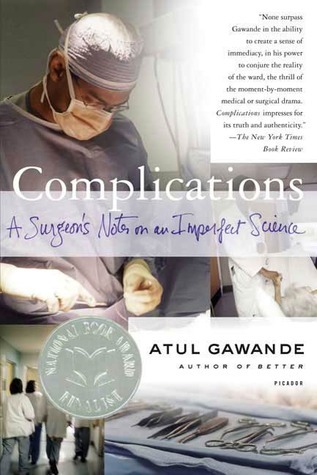More on this book
Community
Kindle Notes & Highlights
Doctors belong to an insular world—one of hemorrhages and lab tests and people sliced open. We are for the moment the healthy few who live among the sick. And it is easy to become alien to the experiences and sometimes the values of the rest of civilization. Ours is a world even our families do not grasp. This is, in certain respects, the experience of athletes and soldiers and professional musicians. Unlike them, however, we are not only removed, we are also alone.
This propensity to see nonexistent patterns has been called the Texas-sharpshooter fallacy.
I’ve decided human beings are somewhere between a hurricane and an ice cube: in some respects, permanently mysterious, but in others—with enough science and careful probing—entirely scrutable.
One of the reasons for this dramatic shift in how decisions are made in medicine was a 1984 book, The Silent World of Doctor and Patient, by a Yale doctor and ethicist named Jay Katz.
We’re supposed to have the answers. We want to have the answers. But there was not a single person he did not have to say those four little words to that day.
The core predicament of medicine—the thing that makes being a patient so wrenching, being a doctor so difficult, and being a part of a society that pays the bills they run up so vexing—is uncertainty.
Medicine’s ground state is uncertainty. And wisdom—for both patients and doctors—is defined by how one copes with it.
It is a reality of medicine that choosing to not do something—to not order a test, to not give an antibiotic, to not take a patient to the operating room—is far harder than choosing to do it.
Much of medicine still lacks the basic organization and commitment to make sure we do what we know to do.
The gray zones in medicine are considerable, and every day we confront situations like Eleanor’s—ones in which clear scientific evidence of what to do is missing and yet choices must be made.
In the absence of algorithms and evidence about what to do, you learn in medicine to make decisions by feel. You count on experience and judgment.
Three decades of neuropsychology research have shown us numerous ways in which human judgment, like memory and hearing, is prone to systematic mistakes.
“The plain fact is,” he wrote, “that many decisions made by physicians appear to be arbitrary—highly variable, with no obvious explanation.
It is because intuition sometimes succeeds that we don’t know what to do with it. Such successes are not quite the result of logical thinking. But they are not the result of mere luck, either.
Human beings have an ability to simply recognize the right thing to do sometimes. Judgment, Klein points out, is rarely a calculated weighing of all options, which we are not good at anyway, but instead an unconscious form of pattern recognition.
The possibilities and probabilities are all we have to work with in medicine, though. What we are drawn to in this imperfect science, what we in fact covet in our way, is the alterable moment—the fragile but crystalline opportunity for one’s know-how, ability, or just gut instinct to change the course of another’s life for the better.


